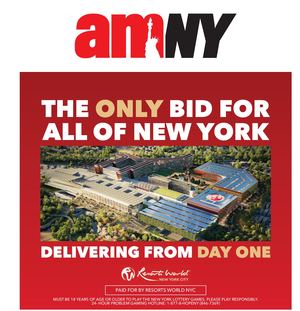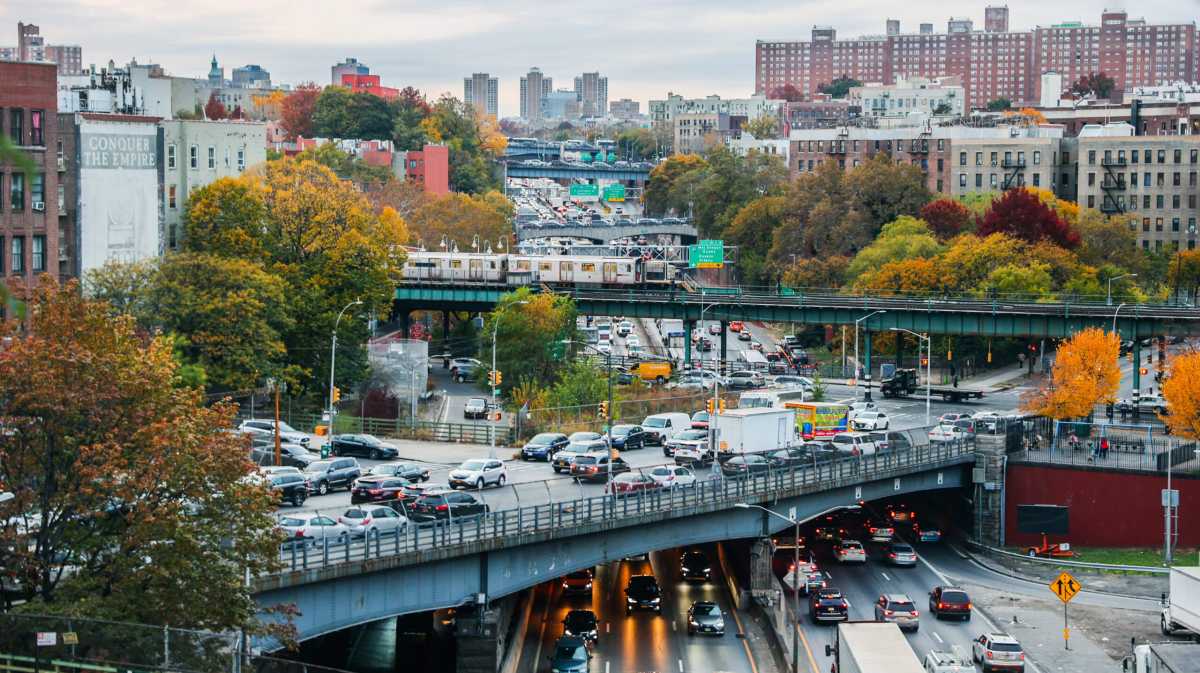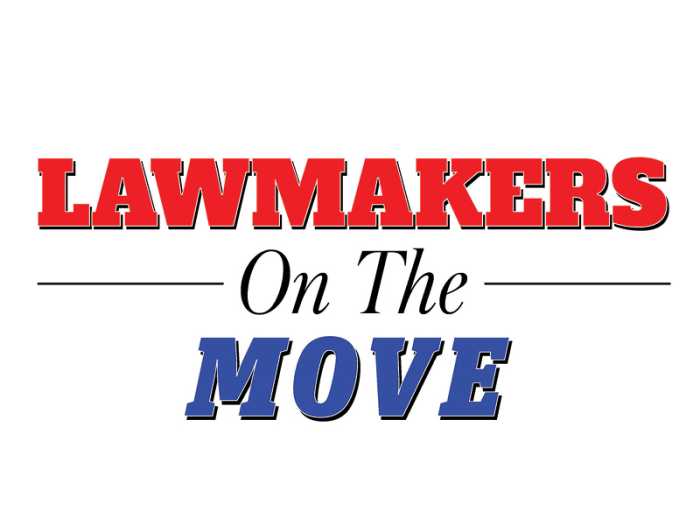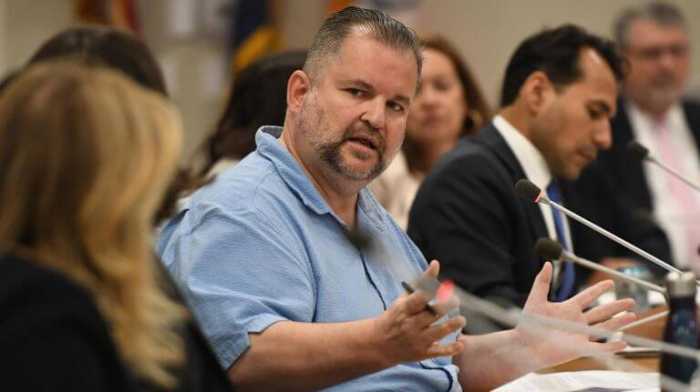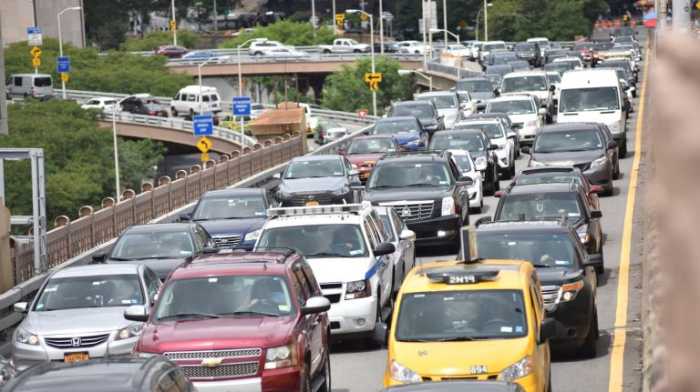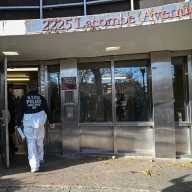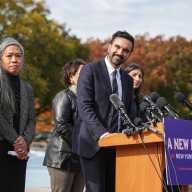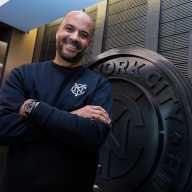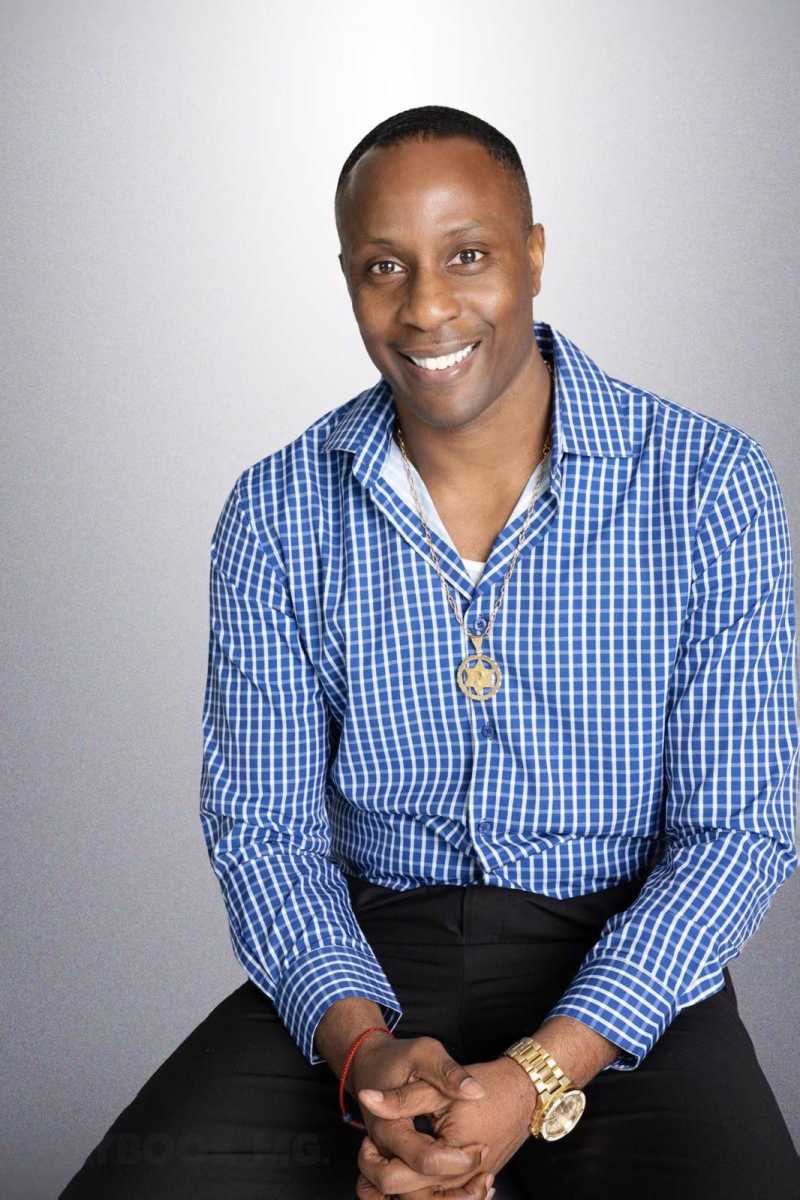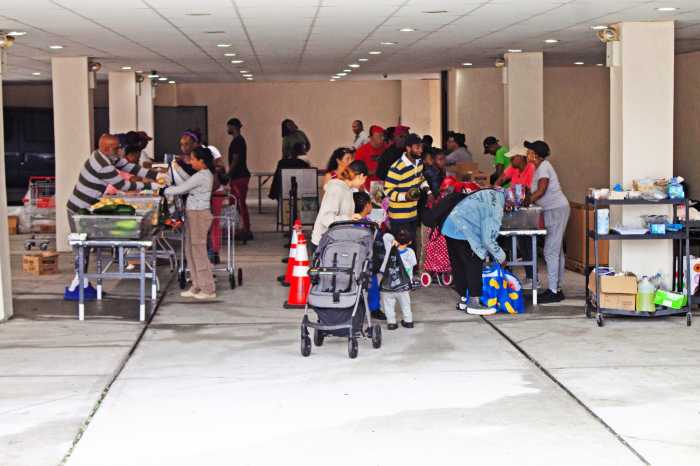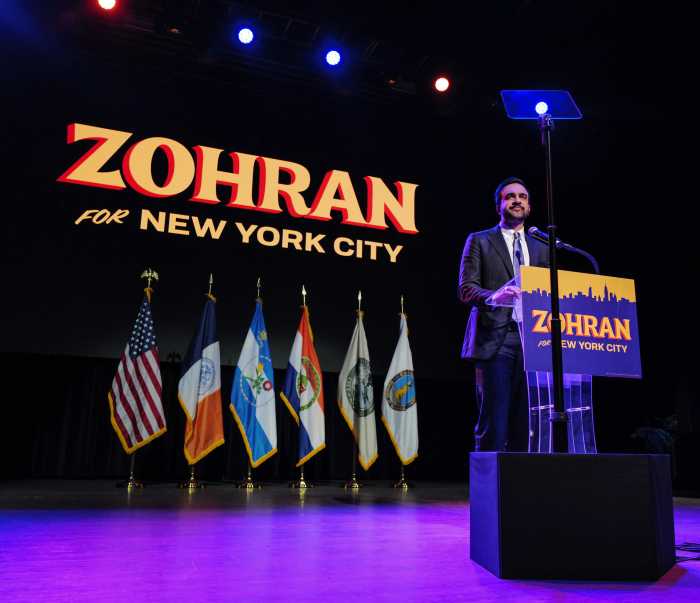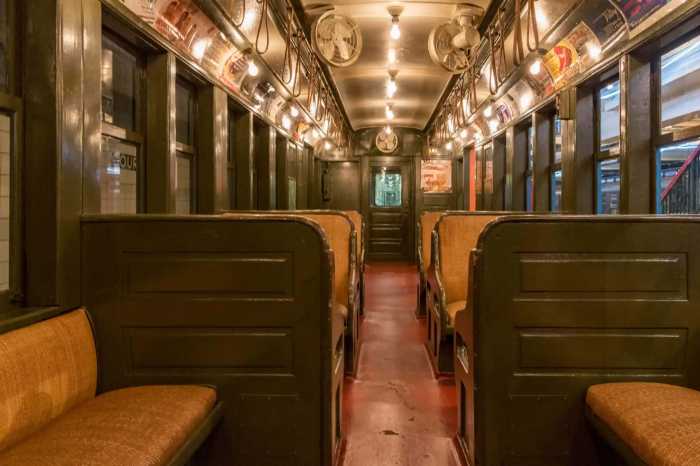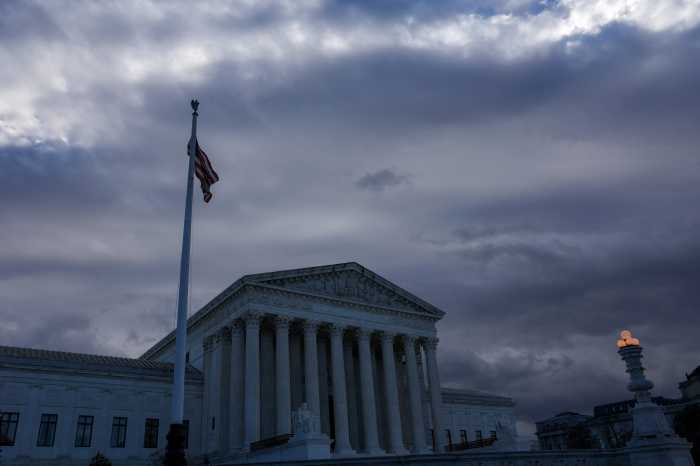Bronx Congress Member Ritchie Torres slammed the state’s congestion pricing proposal because the scheme could divert hundreds more trucks to the Cross Bronx Expressway every day and further pollute the borough’s air.
The representative said Monday that he has long been a supporter of the toll for drivers entering Manhattan’s central business district below 61st Street, but demanded that the new fee not come at the expense of clean air in the Boogie Down.
“The Bronx does not exist to be a sacrificial lamb on the altar of the central business district,” Torres said during a press conference outside his Hunts Point district office on Aug. 15.
Congestion pricing could send more gas-guzzlers through the Bronx because depending on how transit officials set up the toll and its discounts and exemptions, according to a mammoth environmental assessment released by the Metropolitan Transportation Authority last week.
Torres said he felt “ambushed” by the news of a likely increase in truck traffic coming down the pike, which he feared would burden a borough which already suffers from above-average asthma rates.
“The people of the Bronx, the children of the Bronx are struggling to breathe amid the highest rates of asthma and we cannot afford to have our air become less breathable,” Torres said. “We feel ambushed and blindsided and misled.”
Depending on how the MTA structures the charges, the study’s authors forecast between 50 and 704 extra trucks on the Cross Bronx near Macombs Road every day.
The additions are only a couple of percentages at most compared to 27,592 daily heavy haulers driving through without the toll.
The high 704 figure is unlikely, however, since it’s based on the assessment’s tolling Scenario B, the only charging structure that doesn’t meet the MTA’s requirement of making $1 billion in revenue a year, because it includes too many carveouts.
The other viable scenarios still cause between 170–536 additional trucks to pass through the South Bronx thoroughfare each day.
In response those concerns that came up during the months-long study, transit officials added a seventh tolling model – Scenario G — which would cause the fewest amount of additional trucks, at only 50 more vehicles, by charging every driver the same rate.
Under the other scenarios, car drivers pay less than truckers.
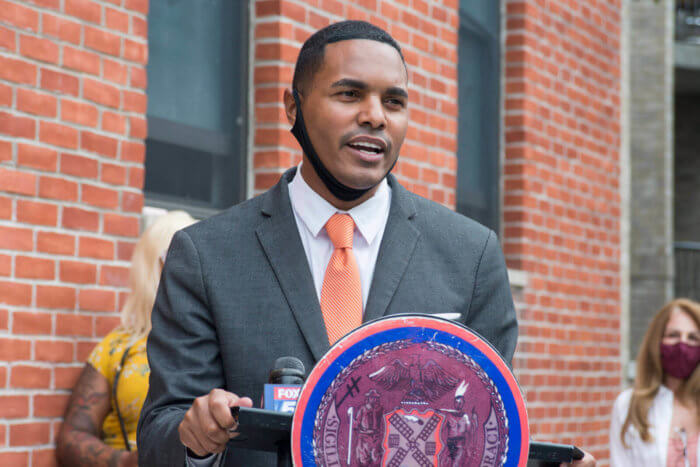
Torres preferred that added option, which would charge between $7–12 depending on the time of day.
“That might be the best scenario to pursue,” the federal politician said.
The study also claims that there will be no adverse effects and no mitigations needed in response to the changes, which Torres lambasted as an “alternative fact” and a lie.
“It insults the intelligence of the Bronx for the MTA to claim that the diversion of diesel truck traffic — hundreds of trucks to the Cross Bronx Expressway — would have no impact on our air quality,” the lawmaker said.
He called on Governor Hochul to fund investments like capping the Cross Bronx Expressway, making the Hunts Point Terminal Market more environmentally friendly, and putting the borough at the front of the queue for electric vehicle chargers.
The MTA noted in the assessment that it will prioritize local bus depots in its efforts to electrify its bus fleet by 2040, and that the city and state will monitor air quality on the highway before and after congestion pricing goes into effect by early 2024.
MTA Chairperson and CEO Janno Lieber said Monday that the whole point of the lengthy environmental study was to analyze those kinds of impacts.
“Depending on what version of it… that you choose, there may be localized impacts,” the transit chief said at an unrelated press conference on Long Island. “The idea of the study is to mitigate those and I’m confident that the people who make the decision about how it actually is done, will take that into consideration and address the Cross Bronx issue.”
A six-member panel with five appointees by Governor Kathy Hochul and one by Mayor Eric Adams known as the Traffic Mobility Review Board will propose a preferred toll for the MTA board to vote on.
Governor Hochul at the same press event said she has heard the concerns of locals.
“Their voices are not in the wilderness, we’re paying very much attention to the issues they’re raising and now that’s on our plates to address,” Hochul said.
